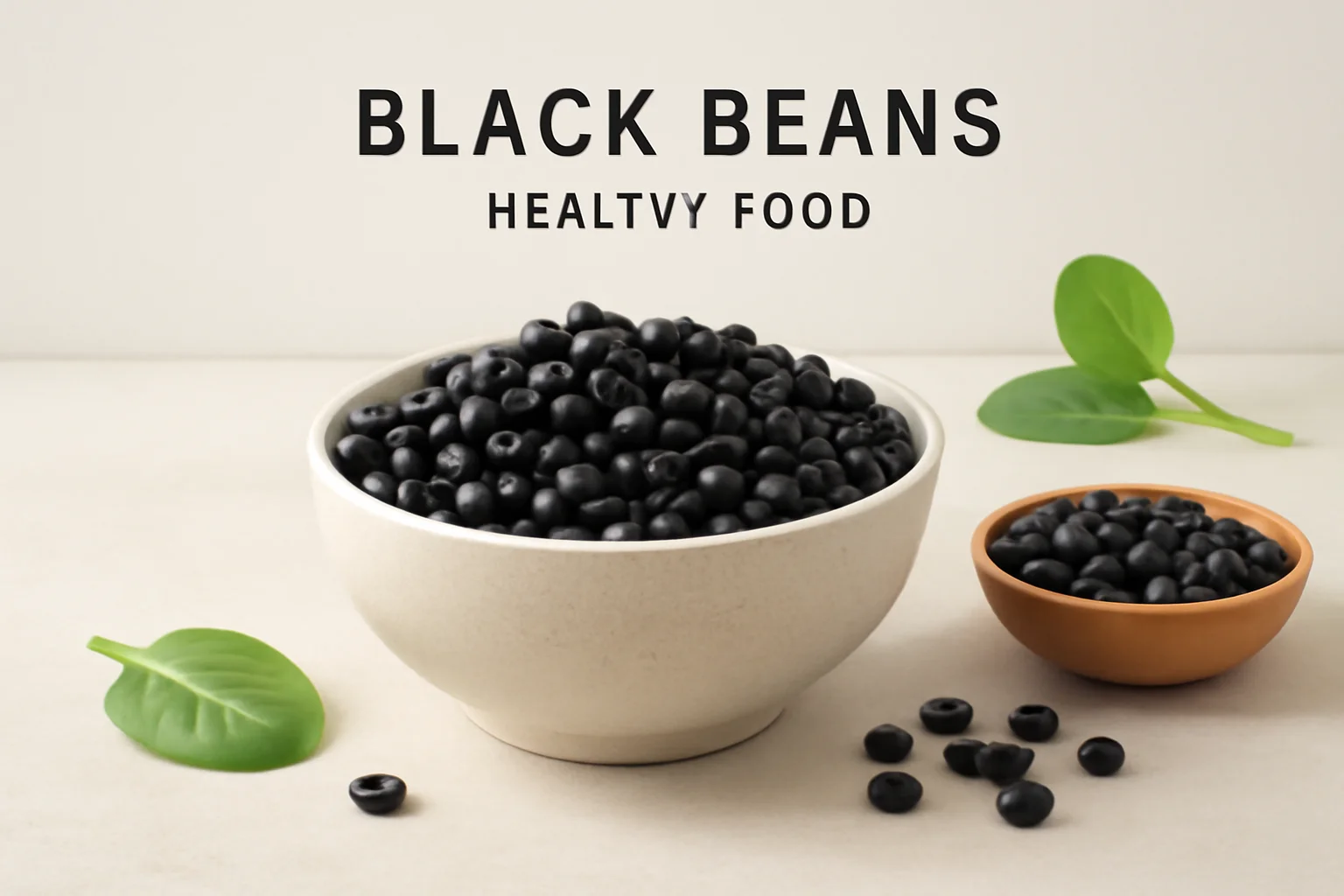
The Beneficial Effects of Black Beans on Our Health
The black bean is a hidden gem of healthy eating, offering numerous beneficial effects. These legumes are not only delicious but also incredibly nutritious, packed with vitamins, minerals, and fiber. The popularity of black beans has been on the rise in recent years, as they play a significant role in vegetarian and vegan diets. They are an ideal choice for those striving for a healthy lifestyle, as they are not only rich in nutrients but also low in calories.
Black beans are particularly rich in antioxidants, which help protect the body against harmful free radicals. Additionally, the fiber found in them contributes to improved digestion and can also aid in regulating blood sugar levels. Black beans are attractive not only from a nutritional standpoint but also in terms of sustainability, as consuming plant-based foods can reduce our ecological footprint.
Thus, black beans are not just a tasty ingredient but a versatile and healthy food that comes with numerous benefits. Now, let’s take a closer look at the beneficial effects of this special legume!
The Nutritional Content of Black Beans
Due to their nutritious components, black beans can be a particularly valuable part of our diet. These types of legumes are excellent sources of protein, fiber, as well as various vitamins and minerals. One cup of cooked black beans contains about 15 grams of protein, which is a significant amount for a vegetarian diet.
In terms of fiber, black beans are also outstanding, with approximately 15 grams of fiber per serving. Fiber not only aids digestion but also helps maintain a feeling of fullness, which can help prevent overeating. With their low calorie content, black beans are an ideal choice for those looking to control their weight.
Moreover, black beans are rich in vitamins, such as B vitamins, which are important for energy metabolism and cellular health. The minerals present in them, like iron, magnesium, and zinc, also contribute to maintaining good health. For instance, iron is essential for the formation of red blood cells, while magnesium plays a role in muscle function and the stability of the nervous system.
The nutritional content of black beans thus encompasses a wide spectrum, so it’s no wonder that more and more people are discovering this healthy and tasty ingredient. Whether in soups, salads, or main dishes, black beans can be incorporated into our diet in many ways.
The Health Benefits of Black Beans
Regular consumption of black beans comes with numerous health benefits. One of the most important positive effects is the protection of the cardiovascular system. The antioxidants found in them, such as flavonoids and polyphenols, help reduce inflammation in the body, which may contribute to a lower risk of heart disease. Additionally, fiber plays an important role in regulating cholesterol levels, so regular consumption of black beans may have beneficial effects on heart health.
Black beans can also help stabilize blood sugar levels. The fiber they contain slows down the absorption of carbohydrates, which can help prevent sudden spikes in blood sugar. This can be particularly important for those suffering from diabetes, as black beans are a low glycemic index food.
Furthermore, black beans can promote digestion thanks to their rich fiber content. Fiber contributes to regulating bowel movements, helping to prevent constipation. Additionally, fiber supports the health of the gut flora, which is essential for proper digestion.
Strengthening the immune system is also among the beneficial effects of black beans. The vitamins and minerals they contain, such as vitamin C and zinc, contribute to improving the body’s defense mechanisms. Thus, black beans are not only nutritious but also have immune-boosting properties.
How to Incorporate Black Beans into Our Diet
Black beans are incredibly versatile, allowing for numerous ways to incorporate them into our diet. One of the most popular uses is in soups and stews. Black beans are excellent in soups and goulashes, as they add rich flavor and nutritious components to the dishes.
Black beans also shine in salads. Combined with fresh vegetables, avocado, and spices, they can create a tasty and nutritious meal. Black beans can even be served as a standalone dish, for example, with quinoa or brown rice, resulting in a complete vegetarian meal.
Black bean puree is also popular, which can be used for sandwiches or tortilla wraps. Black bean puree can be a delicious and healthy alternative to mayonnaise or other fatty sauces.
Freezing black beans is also a simple and practical solution. After cooking, they can be portioned and placed in the freezer, allowing for quick access and use at any time. This not only saves time but also ensures that a healthy ingredient is always on hand.
Thus, black beans can easily be incorporated into daily meals, and we can create numerous delicious dishes from them. Let’s experiment boldly and discover the versatility of black beans!
Conclusion
Black beans are an extremely nutritious and tasty legume that offers numerous health benefits. Thanks to their high protein and fiber content, they can support digestion, cardiovascular health, and blood sugar regulation. Rich in vitamins and minerals, they can also contribute to strengthening the immune system.
Incorporating them into our diet is very simple, as they can be used in various meals. Whether in soups, salads, or purees, the versatility of black beans allows us to use them creatively in the kitchen. So let’s not hesitate to try this healthy and delicious ingredient and enjoy its beneficial effects!
**Disclaimer:** This article is not considered medical advice. In case of health issues, everyone should only follow their doctor’s advice.

